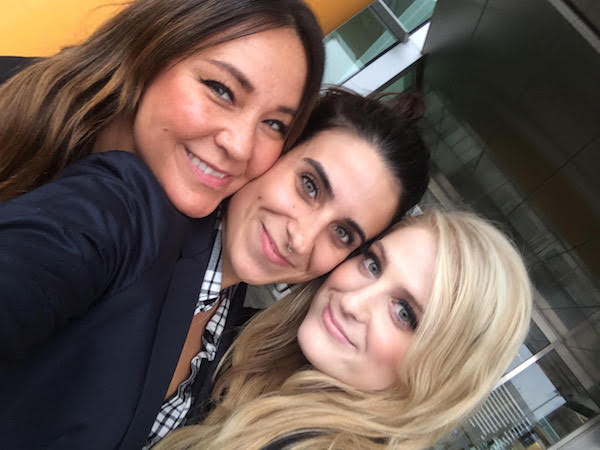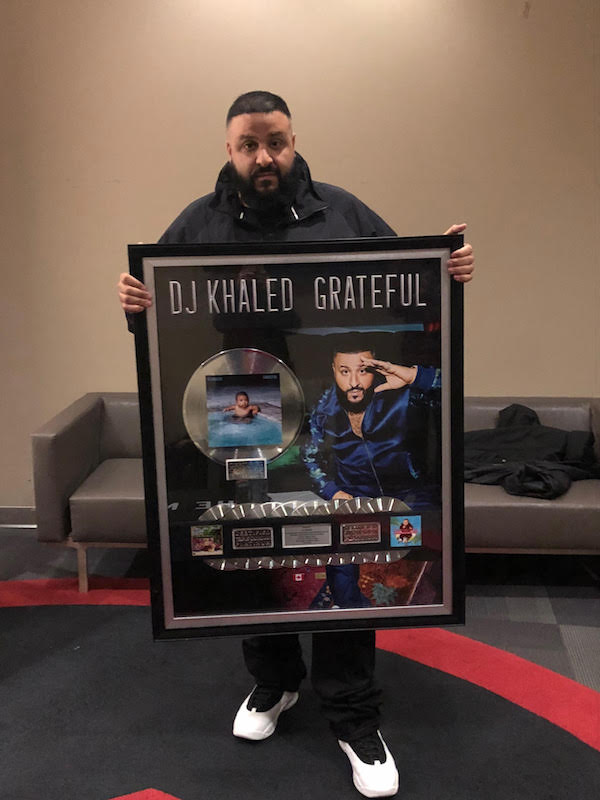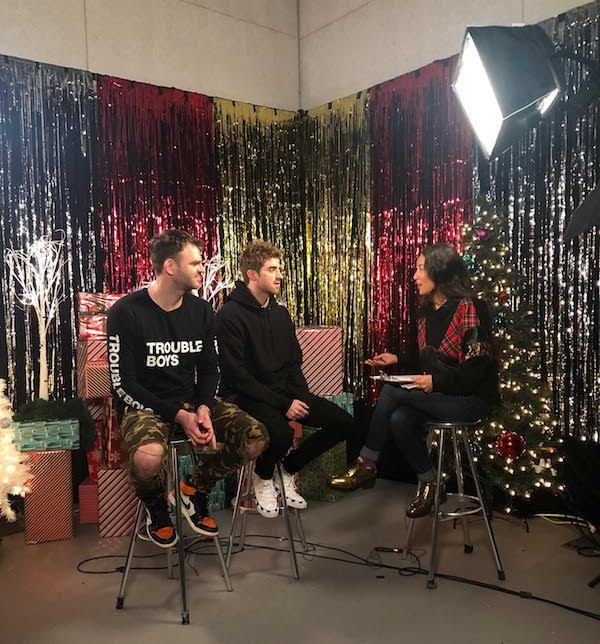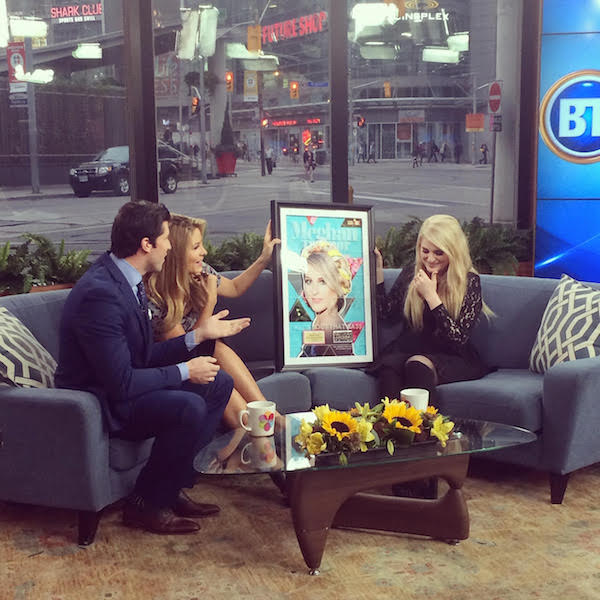For our career series “How I Got My Job,” we’ll be talking to real people, working real jobs across a variety of industries. These people are pushing boundaries and have made their mark. They’ve found success on their own terms, and now we’re extracting their advice on how to carve out your own career path.
Getting into the world of public relations isn’t always easy — and getting to work as a publicist for some of your favourite musicians? Even harder. But for our next “How I Got My Job” spotlight, it’s not just a pipe dream, it’s a reality.
Today, Julia Pittman is the manager of Artist & Media Relations at Sony Music Entertainment Canada, but her career path wasn’t always so clear. Julia’s journey actually started as a student of the University of Guelph-Humber as a Photography/Photo Studies major. But after some doubt, she discovered the school’s media studies program, which, in her eyes, sounded like a much viable career option.
After a few years of gaining experience in public relations for fashion, travel, and even finance, she landed an internship at Sony Music Canada, and the rest is history.
Day-to-day, she works behind the scenes to secure Sony Music Artists media coverage like album reviews, interviews, premieres, and more. Throughout the year, you’ll find her at photoshoots, award shows, music festivals, and TV shows for a roster of artists that include Travis Scott, Vampire Weekend, The Chainsmokers, Meghan Trainor, First Aid Kit, and many, many more.
We spoke with Julia Pittman about how she got her start, the most important things she’s learned on the job, and her tips on how you can score your dream job. Take a peek below.

First thing’s first, what was the first job you ever had? The job after that? And how did it lead you to where you are today?
The very first “real job” I had was a receptionist at an eye doctor’s office while in high school. I quickly got bored of that and moved onto the world of retail. Most notably I worked at Abercrombie & Fitch when it first opened in Canada, then I moved onto work at BCBG, and finally Urban Outfitters. I only wanted to work at places where I could get a discount on clothes that I liked.
While at Urban Outfitters (and still in school) I landed my internship at Sony Music in the publicity department. After my internship, I moved on to work at a few PR agencies (one in fashion, then one in travel, and lastly one in consumer goods and finance). One day (about three years later) I received a call from my current Sony Music boss asking if I was interested in coming back to a full-time position. The rest is history.

What’s a typical day at work for you?
Not one day is the same! But if I’m in the office, I am usually trying to book interviews or coverage for my artists when they’re either coming to cities in Canada for a tour or if they’re putting out a new body of work – i.e. an album or EP. I may be connecting phone interviews while the artist is overseas, or I’m in meetings brainstorming upcoming events and campaigns with my team.
If I’m not in the office, I’m usually with the artist on the road, accompanying them to the promo I’ve scheduled at either morning shows (super early mornings!), entertainment shows, streaming partners like Apple or Spotify, or sometimes we do everything at the venue.
It all depends on the artist’s schedule. At night, you can usually catch me at one of their shows across the city. Lately I’ve been frequenting the Velvet Underground, but in the summer you can find me at Budweiser Stage, sometimes three times a week.

What has been the most fulfilling project you’ve worked on so far?
That’s really tough. There’s so many. It’s been really great to see The Chainsmokers grow from when I first starting working with them around 2015, right after their track “Roses” skyrocketed. It’s awesome to feel like you made a small difference in getting artists’ careers to where it is today, and watching that transition happen over the years.
In your time working, what do you think has been the most important thing that you’ve learned?
As a publicist, I’ve learned that having great communication skills is really important as well as hyper-organization! There’s so many projects I work at the same time, and staying on top of everything is always a big challenge. Also, treating everyone you work with and meet with the same respect and kindness across the board, whether you’re a CEO, an artist, or an intern. That’s really important to me, and I implement that daily.

Creative industries are notorious for unpaid internships or pay via “exposure.” How do you feel about this? Are you for or against unpaid internships?
I think everyone should be paid for their time, so I’m against it. Especially in a creative industry or field, there has been a way of thinking that if you work for free, your return is that you get to put it in your portfolio or resume. I’m sure there’s still some improvement that needs to be done as it pertains to this, but I’m noticing that lately – in the last couple years – there’s been a huge shift in this mindset and interns are getting compensated. I’m glad to see that it’s changing for the better.
How did you turn your dream job into a reality and get paid to do it?
I worked a bunch of jobs that I didn’t necessarily love to get as much experience as I could. To learn from all types of industries, all types of people. Even if it’s something that I was unsure about, I would do it because then at least I would have the experience to say whether it was for me or not.
What’s your advice to someone looking to get into your line of work?
The above! Truly. I get asked this all the time from students aspiring to do PR. If you really want to do music, that’s cool, but you should learn the ropes in other fields such as fashion, tech, finance, etc., too because you will learn valuable skills that may not seem transferrable, but totally are.
And network — especially in person.

What’s one aspect about your job that you wish that you’d been taught in school?
I’m a firm believer that some things just can’t be taught, and you just have to do it. I think my program was on the cusp of social media when most PR pros weren’t really sure how to use it for business (this was at a time when Twitter had just launched, and Instagram was non-existent).
My program also taught me the critical writing, time management, and communication skills that I still use to this day, but I don’t think they could have ever taught me the reputation and personality management skills that being on the job does.
What’s the best thing about working for Sony?
The music, of course!
I get to listen to a lot of my favourite bands (I’m really, really excited for the new Vampire Weekend album out May 3!) and see them live in concert. I’m really lucky.
Articles You Might Be Interested In
How I Got My Job As Founder & CEO Of BOLO Inc.
How I Got My Job As The President Of One Of Toronto’s Favourite Coffee Shops
How I Got My Job As The Canadian Lead For Bumble
How I Got My Job As Co-Founder Of A Toronto Influencer Marketing Agency
How I Got My Job As Creative Director At Ünika Swim
